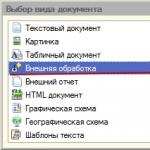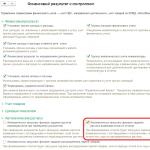List of public organizations of Crimea. Registration of non-profit organizations in Crimea. Justification of social significance
Project objectives:
- providing information and resource, methodological and consulting support to SONCO
- increasing the efficiency of interaction between SONCO, government, business, and the media
- promotion of SONCO in the media
- increase the level of knowledge and develop the competencies of managers, specialists and volunteers of NPOs (at least 150 associations) on issues of registration and activities within the legal framework
- preparation and support for the entry of SO NPOs into the market of services in the social sphere
- increase the level of project activity of SONCO and the quality of developed projects through a series of seminars on the development and management of projects
- to create a database of NGOs in the Republic of Crimea, reflecting the capabilities and needs of associations, by conducting a comprehensive study of the problems and opportunities for the development of the civil sector in the region and conducting targeted monitoring of the activities of associations;
-replicate effective social media practices in the region through a series of seminars
As a result of the project:
- creation and training of a group of local experts from SO NPOs, at least 10;
- methodological recommendations for NPOs and a map of NPOs in Crimea were published;
- a FORUM of NGOs of Crimea was held (200 participants and 2500 visitors)
- conducted the Crimean NGO Fair
- a unified information resource for interaction (exchange of experience, services) of NPOs has been created through the development of an Internet portal;
- increasing the range and volume of social services provided by SO NPOs
-150 representatives of SO NPOs will increase their educational level in the field of activity
non-profit sector;
- a directory of local SONCOs and a list of their services, as well as a directory of the best practices of SONCOs, was compiled and published;
- 100 SO NPOs and initiative groups will be able to exchange their social practices and present them to residents of the region;
- 10 SO NPOs will be included in the register of social service providers of the Republic of Crimea;
- 300,000 residents of the region will be able to get acquainted with the activities of NPOs through project events and their coverage in the media, websites and social networks that took part in the project, as well as through the organization of Internet broadcasting for the NPO community and civil activists
Also, throughout the implementation of the project, the Center’s employees will provide daily telephone and personal consultations to NPO employees and civil activists, and information support for NPO events. It is planned to create an outsourcing platform on the basis of the Center (outsourcing of accounting services, IT outsourcing, personnel outsourcing, legal outsourcing). At the site, the Center will accumulate specialists in various fields of activity, volunteers and students of universities and non-profit organizations who need their services.
Goals
- Creating conditions for increasing the sustainability and quality of work of SO NPOs, through the creation of an information and educational platform to provide resource support to SO NPOs, development of SO NPOs and increasing the efficiency of their activities, promoting successful social practices
- Assistance in the formation and development of the expert potential of SO NPOs of the Republic of Crimea and the city of Sevastopol in the field of organization and implementation of socially oriented projects, programs and social services
Tasks
- provision of institutional (information, methodological, organizational, consulting and other) support to SO NPOs of the Republic of Crimea and the city of Sevastopol, professional accounting and legal assistance
- create a pool of regional trainers/consultants for SO NPOs of the Republic of Kazakhstan and the city of Sevastopol on fundraising, management, accounting and legal support;
- development and publication of informational, educational and methodological materials in the field of SO NPOs for SO NPOs of Crimea and the city of Sevastopol, to identify, summarize and disseminate the best practices for implementing projects of SO NPOs of the Republic of Kazakhstan and the city of Sevastopol
- monitoring and assessing the activities, needs, quality of services provided and accessibility of SO NPOs, as well as the level of development of civil society in Crimea and Sevastopol
- strengthening ties and developing partnerships between regional SO NPOs and interregional and all-Russian organizations and support centers for non-profit organizations
- growth of organizational, managerial, regulatory, financial and economic competence of managers and specialists, volunteers of SO NPOs
- development and strengthening of intersectoral social partnership: (business - government - NGOs - media)
- providing SO NPOs and public associations with real assistance in holding various events, public hearings, presentations of social projects
- promote the activities of SO NPOs in the media;
- development of an information support system - website (portal) for SO NPOs, organization of electronic mailing for SO NPOs;
Justification of social significance
In the Republic of Crimea there is an increase in the number of non-profit organizations, most of them were created to carry out socially oriented activities. Compared to the Unified State Register of Legal Entities as of January 1, 2016, the number of registered NPOs in the Republic more than doubled. According to data as of February 1, 2017, for 2,295,000 residents of the Republic of Crimea there are 1,905 non-profit organizations (NPOs) of various organizational and legal forms (0.9% of all such organizations in the Russian Federation). At the same time, almost 79% of NPOs operate in the Republic of Crimea, a little more than 21% - in the city of Sevastopol.At the same time, many organizations experience difficulties in carrying out their activities and attracting resources for the implementation of social projects. This, in turn, affects the “recognizability” of SO NPOs among the population of the region and their authority among recipients of services. According to the survey results, only 30.5% of residents of the region are informed about the activities of SO NPOs.
One of the problems hindering the effective work of non-profit organizations is technological
imperfection and incompleteness of the legal information base that non-profit organizations have today.
Today, SO NPOs of the republic need not only financial, but also methodological support. Many leaders and activists of SO NPOs want to work effectively, but do not have the necessary knowledge; there is no networking platform where specialists from one organization can help others. RC is a fundamental necessity that will take the non-profit sector to a new qualitative level. Non-profit organizations need knowledge about working with volunteers, about modern methods of attracting resources (fundraising, social design, etc.).
There are a number of problems in the development of SO NPOs in the Republic of Crimea:
- low level of awareness of the population about the activities of public organizations and a low degree of involvement of citizens (including young people) in volunteer and charitable activities;
- insufficient experience in searching for sources of financing that provide the basis for the systematic work of SO NPOs;
- low professional level of SO NPO personnel in the region, lack of a systematically operating infrastructure to support SO NPOs, a small number of activities aimed at methodological and consulting.
To improve the quality of the resource center’s services, improve the regulatory framework in force in the region, build up the expert and professional potential of the RC, and provide comprehensive support to SO NPOs of the Republic of Crimea, a project is planned.
Geography of the project
Republic of CrimeaTarget groups
- SONCO representatives
- volunteers
- authorities
- Members of NGOs, public and voluntary associations
- initiative groups
- proactive citizens
- SO NPO
- Youth and students
Opening hours from 09:00 to 19:00…
+7 978 741 39 41.
Why us?
Cost of our services
| Registration of a turnkey organization: consultation, preparation, submission and receipt of all necessary documents at the Ministry of Justice of Crimea, payment of state fees (including the amount of the fee), production of a seal, preparation of documents for opening a bank account. | 20. 000. rub. |
| for 11 months of rent. The price includes postal service to the address - we will scan all incoming correspondence and send it to you by email. | from . 20,000 rub. |
| from 800 rub. | |
| from 20,000 rub. |
Registration of a non-profit organization in Crimea
Of the many different non-profit organizations, the most popular are: autonomous non-profits, public organizations, foundations, associations (unions).
What is the difference and how to choose the right shape? We will help you figure it out.
Autonomous non-profit organizations
- purpose of creation: provision of services in the field of education, healthcare, culture, science, law, physical culture and sports and other areas
- membership: none
- commercial activity: permitted to achieve the purposes for which it was created
Public organizations
- purpose of creation: satisfaction of non-material and spiritual needs, common interests
- founders: at least 3 persons, individuals and/or legal entities (public associations)
Funds
- purpose of creation: achieving social, cultural, charitable, educational and other socially beneficial goals
- membership: none
- founders: individuals and/or legal entities
- commercial activity: permitted to achieve statutory goals
Associations (unions)
- purpose of creation: representation and protection of common, usually professional, interests, coordination of business activities, achievement of other socially useful goals
- membership: present, each member pays dues
- founders: at least 2, individuals and (or) legal entities
- commercial activity: permitted to achieve statutory goals
Having chosen the appropriate form of organization, you can begin registering it. The main thing you have to do is:
- determine the goals and subject of activity;
- come up with a name that meets the requirements of the law;
- develop a charter, prepare minutes of the general meeting, fill out an application on form P11001;
- pay a fee of 4,000 rubles;
- submit documents for registration to the Ministry of Justice of Crimea.
List of required documents
Application form
Signed by one of the founders in the presence of the registrar (if submitted in person). If the founder is unwilling or unable to submit the application personally, a third party can be authorized to submit the application. To do this, the founder signs an application with a notary and makes a notarized power of attorney for the submitting person.
Charter
A properly prepared charter is the key to quick and successful registration. Pay maximum attention to drawing up the goals, subject matter, rights and obligations of the founders and members of the organization, powers of the governing and executive bodies. Three copies of the Charter are submitted to the Ministry of Justice; it is not required to be notarized.
Decision (protocol) on creation
Signed by all founders in at least three copies, one of which remains with the founders, and two are submitted to the Ministry of Justice. Don't forget to stitch them and number them first.
Receipt for payment of state duty
The payer of the fee is one of the founders. Fee amount: 4,000 rub. The original payment receipt will need to be attached to the rest of the package of documents.
Letter of guarantee
In Crimea, a non-profit organization can be registered both at the place of registration of one of the founders and at the location of the rented premises. If you chose the first option, then you will not need to submit any additional documents. If the second, you will be required to provide confirmation from the landlord that he does not object to the registration of an NPO at the address of his premises. As such confirmation, a letter of guarantee is usually used, drawn up in any form, with copies of title documents attached.
Where to submit documents?
To register an NPO in Crimea, documents are submitted to the Main Directorate of the Ministry of Justice of Russia for the Republic of Crimea, located at the address: Simferopol, st. Dolgorukovskaya, house 16. If you decide to register a non-profit organization in Sevastopol, please contact the address: Sevastopol, st. 4th Bastionnaya, building 3.
Terms of consideration
Applications for state registration of non-profit organizations in Crimea are considered by the Ministry of Justice within 30 calendar days, after which, if a positive decision is made, your document is sent for registration to the tax authority. Typically, this takes about two more weeks.
A significant difference between opening a public (non-profit) organization is that, in case of refusal, the Ministry of Justice returns the application you previously submitted. This means that when resubmitting documents you will not have to resort to the services of a notary again. However, this option is only relevant if you received a refusal due to errors not related to the application.
Normative base
When drawing up documents for registration of a non-profit (public) organization in Crimea yourself, you will need to check them for compliance with the following regulations:
- Civil Code of the Russian Federation;
- Federal Law of 08.08.2001 N 129-FZ “On state registration of legal entities and individual entrepreneurs”;
- Federal Law of January 12, 1996 N 7-FZ (as amended on July 21, 2014) “On Non-Profit Organizations”;
- Federal Law of May 19, 1995 N 82-FZ (as amended on July 21, 2014) “On Public Associations”;
- Decree of the Government of the Russian Federation of April 15, 2006 N 212 (as amended on May 30, 2013) “On measures to implement certain provisions of Federal laws regulating the activities of non-profit organizations”;
- Order of the Ministry of Justice of the Russian Federation dated August 3, 2009 N 244 “On approval of the form of the certificate of state registration of a non-profit organization”;
- Order of the Ministry of Justice of Russia dated 05/07/2013 N 68 “On determining the forms of documents submitted to the Ministry of Justice of the Russian Federation and its territorial bodies for state registration of non-profit organizations”;
- Order of the Federal Tax Service of Russia dated January 25, 2012 N ММВ-7-6/25@ “On approval of forms and requirements for the execution of documents submitted to the registration authority for state registration of legal entities, individual entrepreneurs and peasant (farm) farms.”
Bottom line
To summarize, it should be noted that when preparing documents for registering a public (non-profit) organization, in addition to competently drawing up the minutes of the meeting of participants and carefully filling out the application, special attention should be paid to the charter and its compliance with the current legislation of Russia. Based on practice
Since the appearance of the term “foreign agent” in Russian legislation (non-profit organizations that conduct political activities and at the same time receive funds from abroad are required to register as such), the debate about the correctness and effectiveness of such a measure has not subsided in the public space.
The liberal public argues that being called an “agent” is derogatory. In response, they are rightly objected that such a practice is accepted in many developed countries, and the objections lie not in the rational, but in the emotional field.
Scandals break out from time to time: some organizations are recognized as “foreign agents” by decision of the Ministry of Justice, others are fined for failure to comply with legal requirements, others liquidate NPOs, simultaneously accusing the state of putting pressure on the third sector.
“It’s not us, it’s an NGO”
At the highest level, the discussion around the status of NGOs took place on December 8 during a meeting between Vladimir Putin and members of the Council for the Development of Civil Society and Human Rights. Then a member of the Human Rights Council, Natalia Evdokimova, addressed the head of state and called it “simply absurd” the situation with the inclusion of a number of non-profit organizations in the register of foreign agents, in particular those involved in the fight against AIDS.

After listening to the speech of Evdokimova, who, in the heat of shielding NGOs, made a “Freudian slip”, calling publicly useful services “publicly paid”, the head of state told human rights activists that the situation with non-profit organizations is not as simple as it might seem. Yes, they perform many functions useful to society, but they are often agents of hidden influence on the socio-political life of the country on the part of foreign elites and intelligence services:
I recently had a conversation with one of my colleagues about our influence on some political processes abroad, I said to him: “What are you doing? You constantly interfere in our political life.” And he tells me: “It’s not us, it’s public non-profit non-governmental organizations.” I say yes? But you pay them and write instructions.” He says to me: “What are the instructions?” I say: “Yes, I read them.”
According to the head of state, the adoption of the law on “foreign agents” has changed the principles by which Western states work with agents of their interests in Russia:
As soon as we passed a law restricting such funding within the framework of political activities in the country, organizations appeared that were not subject to these restrictions. Decisions were immediately made in the bodies that finance these activities to concentrate their funding on those who are allowed, but with a corresponding impact on their practical activities in the country. In this case - in our country.
“We cannot allow this to happen in Russia and will never allow this,” Vladimir Putin concluded, putting an end to the discussion of the political activities of NGOs that receive funds from abroad. The words of the President of the Russian Federation can be regarded not only as a statement of the principle of ensuring national security and sovereignty, but also as a guide to carefully monitor such activities.
Under the guise of goodness and kindness
“Vladimir Putin did not just highlight the fact that foreign intelligence services today prefer to work through NGO agents with the most humanistic orientation, helping patients with HIV, tuberculosis, malaria, and so on,” political scientist Vladimir Kireev told Reedus. - This is very convenient, because you won’t be able to close a fund that formally does not make money from people, but only seeks to help the disadvantaged. Plus, in the event of any checks by law enforcement agencies about where and where the money goes through a charitable organization, the “democratic” press of Europe and America will make a fuss and accuse the authorities of totalitarianism and violation of all kinds of international rights and freedoms.”
According to Kireev, similar organizations, used as cover by Western intelligence services, exist in many countries around the world. Funds flow into them for campaigning and organizing various opposition or anti-government actions:
A financial cell “in the rear” of a country with an undesirable regime is a necessary foundation for a future underground or even sabotage work, the expert notes.
At the same time, according to the political scientist, if we talk about Russia, then a large number of “to put it mildly, dubious organizations that should be taken a closer look” are operating today in Moscow, St. Petersburg, in Siberia and, possibly, Crimea.
As an informed source told Reedus, last fall, comprehensive checks were carried out on non-profit organizations on the peninsula that received foreign funding.
The list, which the Reedus correspondent reviewed, includes the charity foundation “Hope and Salvation” (which received funds from the “Global Fund to Fight AIDS, Tuberculosis and Malaria” in the amount of 9.4 million rubles), the ANO social services “Patients of Crimea” (3.2 million rubles), ANO "Youth Center for Women's Initiatives" (5.5 million rubles), Sevastopol regional public organization of social projects "Gavan Plus" (0.5 million rubles).
As a result of inspection activities, employees of regulatory authorities identified violations of the fire safety regime, as well as a number of violations of the terms of lease of premises, in addition, the tax service of the republic was issued an order to conduct an audit of financial documentation. At the moment, not a single NGO in the republic has the status of a “foreign agent,” but it is not at all obvious that the situation will not change soon.
Philanthropists with a trick
Last week, residents of Simferopol could meet activists on the streets distributing information sheets from the Nadezhda and Salvation charity foundation, a non-profit organization registered in Crimea whose goals are to promote the improvement of society and prevent the spread of HIV/AIDS.
“We invite all concerned citizens to unite and bring to the attention of the authorities of the peninsula problematic issues of socially vulnerable segments of the population in order to develop management decisions,” read the text of the leaflets that were distributed to passers-by. They also indicated that the center’s work is aimed at “lobbying for projects to prevent an epidemic in the region” and covering activities at the level of the executive branch of the republic, and also provided contact information for the organization.




It would seem that there is nothing alarming, although the eye catches the words “lobbying”, “communication to management”, “development of management decisions” - this smacks too much of politics. But as soon as you go to the organization’s website, suspicions intensify.
The website operates within the framework of the project “Overcoming the HIV Epidemic in the Autonomous Republic of Crimea” (direction “Regional Information and Resource Center on HIV/AIDS in the Autonomous Republic of Crimea”) with the financial support of the ICF “International Alliance on HIV/AIDS in Ukraine,” the site header says "Hope and Salvation".
The Autonomous Republic of Crimea was the official name of the region at the time when it was part of neighboring Ukraine. What relation does Crimea have now to the neighboring state? Perhaps the employees of a charitable foundation registered in Russia do not know something, are not aware of the referendum that took place in 2014? Or, on the contrary, in such an unobtrusive way they call for a violation of the territorial integrity of the Russian Federation, simultaneously receiving “financial support” for this? But in this case it is completely a criminal offense.
The Hope and Salvation charity foundation has been operating in Crimea since 1998; in January 2015 it was re-registered in accordance with the requirements of Russian legislation. The co-founders of the organization were Alexander Ganul (currently the president of the foundation) and Alexander Yatsyuk. Formerly the regional coordinator of the International Alliance, Yatsyuk is also no stranger to business. According to the Unified State Register of Legal Entities, he currently heads a certain LLC “Mercury”, which is engaged in leasing and property management.
He owns the company together with the Kyiv company Rizza Investment, and while Yatsyuk’s financial share in Mercury is only 10 thousand, the Ukrainian LLC contributed as much as 61.1 million rubles to the authorized capital. Mercury's financial results, however, are not impressive: in 2015 the company showed no revenue (not to mention profit), its net loss amounted to 113 thousand rubles. As for Rizza Investment, no significant information can be found about it; one gets the impression that the companies are shells, used not for statutory purposes, but for some other, non-public activity.
According to the Unified State Register of Legal Entities, “Nadezhda and Salvation” provides social services without providing accommodation for the elderly and disabled (code 88.10) and care activities with the provision of accommodation (code 87.90).

On the organization’s website, however, there is no mention of any care or accommodation; there, as in the information sheets, it is now stated that the goals of the organization are to promote a healthier society, prevent the spread of HIV/AIDS and provide access to medical, social and other services for patients.
At the same time, until very recently, the foundation’s website was somewhat more informative: in particular, it said that Alexander Yatsyuk was engaged in lobbying projects of non-governmental organizations in the executive branch, and the foundation itself not only lobbied for educational programs and information campaigns, but also promoted organizing visits and accompanying important visitors.
Why did this information suddenly disappear from the site on the morning of October 29, 2016? Is it because “important visitors” in “Hope and Salvation” are called representatives of the USAID agency, whose activities are prohibited on the territory of the Russian Federation?
"Black cash" from USAID
As Reedus found out, the Hope and Salvation Foundation actually has quite close ties with an American organization banned in Russia. The first channel is the Alliance-Ukraine Foundation, within the framework of which the Crimean Foundation exists. The Alliance website says so: the organization began its work “at the end of 2000 in the form of an international technical assistance project within the framework of the Transatlantic HIV Prevention Initiative with the support of the US Agency for International Development.”
But this is not enough, “Hope and Salvation” directly receives grants within the framework of a special program (President's Emergency Plan for AIDS Relief), which is implemented through the Global Fund to Fight HIV/AIDS, Tuberculosis and Malaria, including the US Department of Defense and again the Agency for International Development (USAID).

Everything is as Vladimir Putin said:
Funding is allocated from the budget, sometimes camouflaged, the money, the final source, is budgetary, then it goes through various channels, even seemingly to non-governmental organizations, and from there it goes abroad, not only to Russia, but also to many other countries.
Detailed information about the funds listed is contained in the grant support reports UKR-011-G08-H (), UKR-011-G09-H (Building a sustainable system of comprehensive services on HIV prevention, treatment, care and support for MARPs and PLWH in Ukraine), UKR-C-AUA () and UKR-C-AUN (Investing for impact against Tuberculosis and HIV).
Judging by the figures recorded in the documents, in just over the past two years, four non-profit organizations have received about one million dollars from overseas, and some of these funds were transferred in cash (for which there are special notes in the reports). Here are our charitable foundation and other Crimean organizations that have already come to the attention of the republic’s supervisory authorities. It looks like it was not in vain.
As follows from the documentation, from 2014 to 2016, the Hope and Salvation charitable foundation received $681,770 (of which more than a third, $254,577, was in cash). During the same period, the ANO “Youth Center for Women’s Initiatives” received $351,383 from the grantor ($128,201 in cash). The non-profit organization “Your Victory” began receiving funds in April 2015; during the year it received $107,404 ($57,266 in cash). The NGO “Patients of Crimea” received grant funds in 2015 ($70,895, of which $10,346 in cash), and “Gavan Plus” received grant funds in 2014 and 2015 ($33,300 and $702, respectively). It is not possible to trace the fate of another $123,522 dollars transferred to Crimea (the documentation only contains references to certain “Crimean recipients”).
However, even without this, the identified payments, even taking into account exchange rate changes, significantly exceed the amounts that were known to the Crimean security forces. And this money actually comes to Russia from an organization whose activities have been banned in the country for four years now.
"Agency of Orange Revolutions"
According to the charter, officially the US government, through USAID and its affiliated organizations, promotes “the development of the economy and democracy, health care, assists in conflict prevention and provides emergency humanitarian assistance.”
In fact, political scientist Kireev notes, USAID employees, under the guise of whom CIA personnel often act, inspire the growth of protest sentiments among the population in order to interfere in the internal politics of sovereign states.
Much like it was in Cuba, where, with the support of the agency





